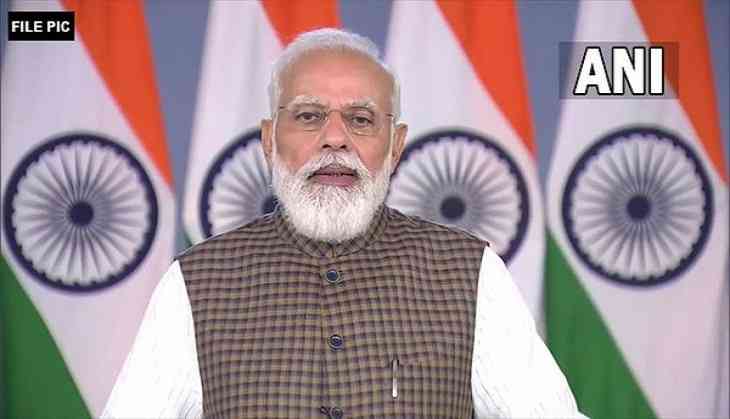
Prime Minister Narendra Modi on Saturday chaired a meeting with top officials on Covid-19 and said that we need to be proactive in light of the new variant while laying emphasis on the precautions to contain the virus.
PM Modi was briefed about the Covid-19 situation across the world, including new Variant of Concern 'Omicron' along with its characteristics and the impact seen in various countries, as per the Prime Minister's Office (PMO).
He further highlighted the need for monitoring all international arrivals, their testing as per guidelines, with a specific focus on countries identified 'at risk'. PM Modi also asked officials to review plans for easing of international travel restrictions in light of the emerging new evidence.
The Prime Minister also directed officials to work closely with state governments to ensure that there is proper awareness at the state and district level. He directed that intensive containment and active surveillance should continue in clusters reporting higher cases and required technical support be provided to states which are reporting higher cases presently.
PM Modi also asked that awareness needs to be created about ventilation and air-borne behaviour of the virus.
Amid rising concern about a new COVID-19 variant 'Omicron' first detected in South Africa, India also added several countries to the list from where travellers would need to follow additional measures on arrival in India, including post-arrival testing for infection.
The Ministry of Health and Family Welfare adds Hong Kong and Israel to the list of countries from where travellers would need to follow additional measures on arrival in India, including post-arrival testing considering the detection of new COVID variant 'Omicron' in South Africa.
Countries from where the travellers would need to follow additional measures on arrival in India are South Africa, Brazil, Bangladesh Botswana, China, Mauritius, New Zealand, Zimbabwe, Singapore, Israel, Hong Kong, countries in Europe including the UK.
This variant is reported to have a significantly high number of mutations, and thus, has serious public health implications for the country, in view of recently relaxed visa restrictions and opening up of international travel.
(ANI)


